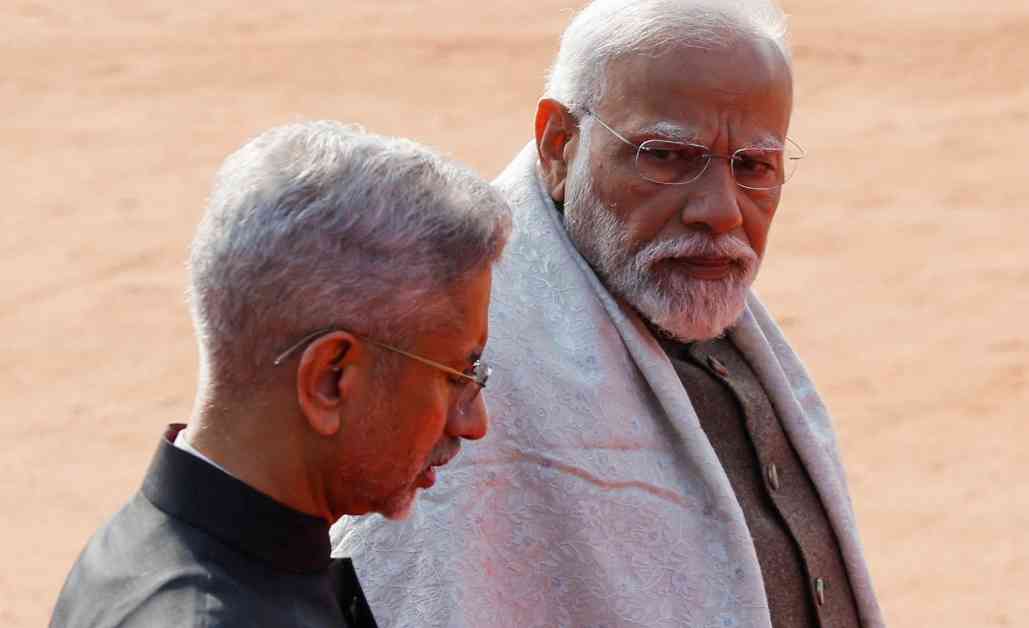When Pakistan hosts the Shanghai Cooperation Organisation (SCO) summit next month, the presence or absence of Indian Prime Minister Narendra Modi will be a significant factor. The rivalry between India and Pakistan has long been a point of contention in the region, and it has had far-reaching implications for various multilateral organizations, including the South Asian Association for Regional Cooperation (SAARC). However, the impact of this rivalry on the Russia-China led SCO alliance remains a subject of debate among analysts.
### India-Pakistan Relations at the SCO Summit
The upcoming SCO summit in Pakistan is set to be a major gathering of top world leaders, with heads of government from member countries like Russia, China, India, Pakistan, and others in attendance. The question on everyone’s mind is whether Indian Prime Minister Narendra Modi will attend the summit, given the strained relations between India and Pakistan.
While India has received an invitation to the summit, there is skepticism about Modi’s attendance, especially in light of the ongoing tensions between the two neighbors. The rivalry between India and Pakistan has not only affected bilateral relations but has also had implications for regional and international organizations.
### Impact of India-Pakistan Rivalry on Multilateral Organizations
The rivalry between India and Pakistan has had a significant impact on multilateral organizations in the region. The SAARC, a regional grouping that includes India, Pakistan, and other South Asian countries, has been effectively paralyzed due to the tensions between the two largest members. The SAARC has not held a summit since 2014, with the cancellation of the Islamabad meeting in 2016 being attributed to the India-Pakistan rivalry.
The SCO, on the other hand, has managed to navigate the challenges posed by the India-Pakistan rivalry to a certain extent. The SCO was founded and is led by global powers like China and Russia, which gives it a stronger foundation and a more cohesive leadership structure. Despite the tensions between India and Pakistan, the SCO has continued to function effectively, with both countries largely avoiding actions that could disrupt the organization’s priorities.
### The Kashmir Issue and Bilateral Relations
The primary point of contention between India and Pakistan remains the disputed region of Kashmir. The two countries have fought multiple wars over Kashmir, and an armed rebellion has persisted in Indian-administered Kashmir since 1989. The revocation of Article 370 of the Indian Constitution by the Modi government in 2019 further heightened tensions between the two countries.
The issue of Kashmir continues to be a bone of contention between India and Pakistan, with both countries holding firm positions on the matter. The recent statement by Indian External Affairs Minister S Jaishankar declaring the end of uninterrupted dialogue with Pakistan underscores the challenges in the bilateral relationship.
### Prospects for Modi’s Attendance at the SCO Summit
The likelihood of Indian Prime Minister Narendra Modi attending the upcoming SCO summit in Pakistan remains uncertain. While there is a precedent for leaders of India and Pakistan engaging in dialogue at SCO summits in the past, the current state of the relationship between the two countries makes Modi’s attendance at the summit unlikely.
Analysts have expressed skepticism about Modi’s potential visit to Pakistan, citing the negative signals coming from New Delhi and the lack of progress in bilateral relations. The ongoing tensions between India and Pakistan, particularly over the Kashmir issue, continue to pose challenges to any potential rapprochement between the two countries.
### The Role of the SCO in Regional Diplomacy
The SCO has played a significant role in regional diplomacy, providing a platform for dialogue and cooperation among member countries. Despite the challenges posed by the India-Pakistan rivalry, the SCO has managed to maintain its cohesion and effectiveness as an organization.
The upcoming summit in Pakistan will be a test of the SCO’s ability to navigate the complexities of the India-Pakistan relationship and continue functioning effectively. The presence of global powers like China and Russia in the leadership of the SCO has provided a stabilizing influence that has prevented any single member from derailing the organization.
### Conclusion
The impact of the India-Pakistan rivalry on the Russia-China led SCO alliance remains a subject of debate among analysts. While the rivalry has had significant implications for regional and international organizations like the SAARC, the SCO has managed to maintain its cohesion and effectiveness despite the challenges posed by the India-Pakistan relationship.
The upcoming SCO summit in Pakistan will be a crucial test of the organization’s ability to navigate the complexities of the India-Pakistan rivalry and continue its mission of promoting regional cooperation and stability. The presence or absence of Indian Prime Minister Narendra Modi at the summit will be closely watched, as it could have implications for the future of the SCO and its role in regional diplomacy.


























